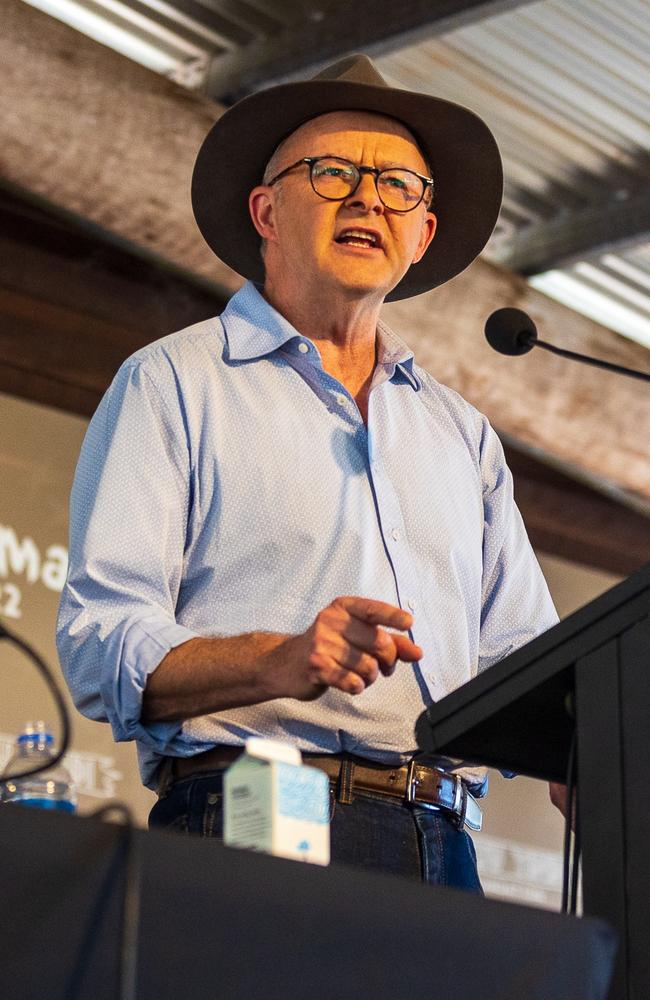Voice to Parliament must support remote Northern Territory residents
The proposed Voice model has the potential to further alienate the concerns of Aboriginal people living in remote parts of the Territory, writes Matt Cunningham.
Opinion
Don't miss out on the headlines from Opinion. Followed categories will be added to My News.
There’s a nonsense idea being pedalled by the federal and Northern Territory governments that it is somehow disingenuous to ask for more detail about an Aboriginal and Torres Strait Islander Voice to Parliament.
Federal Opposition Leader Peter Dutton has put forward 15 questions he would like the government to answer about the Voice.
Some of these questions are relevant to the Northern Territory, particularly his last question that asks how a Voice will “effectively address the real issues that impact people’s lives daily on the ground in the community”.
But there are other questions Territorians should want answered about the Voice.
When asked about the detail, Prime Minister Anthony Albanese has pointed to a report prepared by Professor Marcia Langton and Professor Tom Calma that was commissioned by the previous Coalition government.
Calma and Langton have clearly endeavoured to ensure regional and local views are included in the Voice.
To achieve this they have proposed a tiered structure where 35 regional voices sit below a national Voice.

The 35 regions would include six from the Northern Territory but just two from Victoria, one from the ACT and one from Tasmania.
The regional voices would feed into an overarching national Voice.
All well and good so far.
The alarm bells for the Northern Territory should start ringing when we consider the proposed make-up of the national Voice.
Calma and Langton’s proposal is to have two representatives on the Voice from each state and territory plus two from the Torres Strait Islands.
Western Australia, Queensland, South Australia, New South Wales and the NT then get a third member to represent regional areas, while the Torres Strait get a third to represent their people who live on the mainland.
This model will leave the Northern Territory sadly under-represented.
The ACT, with just 7513 Aboriginal and Torres Strait Island people – none living in remote areas – will have two seats on the national Voice.
The proposed model has the potential to further alienate the concerns of Aboriginal people living in remote parts of the Territory in favour of the first-world issues of those in urban areas.
When he was the Indigenous affairs minister, Territory senator Nigel Scullion was smashed by the east coast media for suggesting the issue of changing the date of Australia Day was never raised with him in Indigenous communities.
“I’ve just spent the last week in different communities around Australia, and it never comes up as an issue,” he told the ABC’s AM program in 2018.
I travelled to more than a dozen communities with Scullion when he was the minister and never heard it raised either.
Labor politicians have privately expressed a similar view.

What people in those communities do want to know is why their access roads are often impassable, their schools are under-funded and their police station has closed down.
This is not to dismiss concerns about Australia Day, but to show that people in the bush often have more pressing priorities.
An urban-heavy national Voice – even with a regional voice sitting below it – risks leaving the most marginalised Aboriginal Australians even further behind.
These are all issues the Northern Territory government should be raising.
Instead this week it moved a pointless motion for the NT Parliament to support the Voice; a move designed to wedge the Country Liberal Party, which is heading for a bloodbath on the issue at its central council meeting this weekend.
This was simply a tool to provide a distraction from its own disastrous performance over the past month, caused in large part by its failure to listen to Aboriginal voices in the federal parliament.
The government should put the games aside and start lobbying so that the Voice – which has strong prospects of passing when a referendum is held later this year – offers the best possible deal for the Territory.





